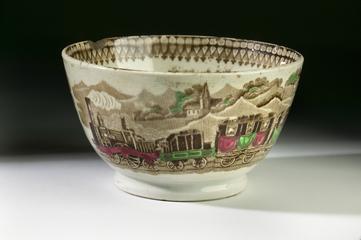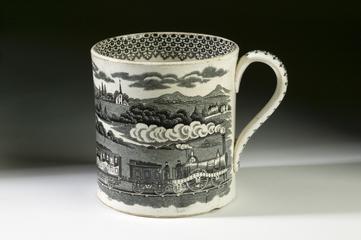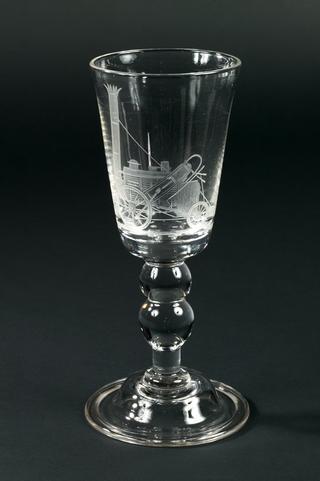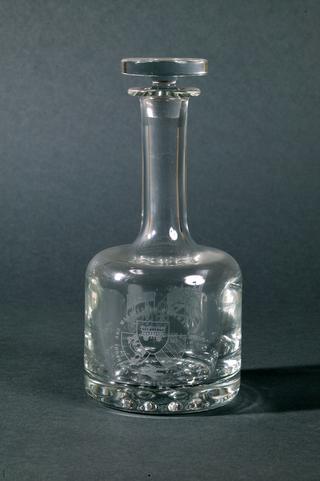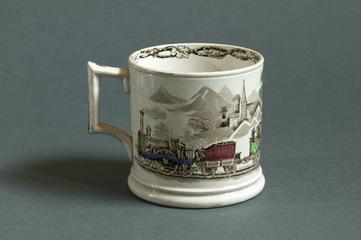
Sundial from Liverpool Road Station
- Made:
- 1833 in unknown place

Sundial from Liverpool Road Station, Manchester, 1833.
This sundial was made in 1833 for use at Liverpool Road Station in Manchester. It was placed on a pillar above the first class passenger entrance and could be seen from the waiting room. This station was the Manchester terminus of the Liverpool and Manchester Railway, the world's first purpose-built passenger and goods railway. The opening of the Liverpool and Manchester Railway heralded a new transport era.
The new railways brought other changes. In the 1830s clocks were set to local time taken from sundial readings, which meant that railway timetables had to allow for local time variations. From the 1840s, railway companies campaigned for a system of 'universal time'. When Parliament declined to act, many railway companies decided to adopt 'London time' for their timetables.
The latitude and longitude of the station are inscribed at the top of the sundial so it could be correctly positioned to tell the time with a reasonable degree of accuracy. The triangular “fin” of the sundial is called a gnomon, and must also be at a particular angle to the base depending on where the sundial is located. This means that this sundial, designed to be used in Manchester, could not tell the correct time in New York or Sydney.
Details
- Category:
- Liverpool & Manchester Railway
- Object Number:
- Y1994.68.2
- Materials:
- wood (unidentified) and copper (alloy)
- Measurements:
-
285 mm 530 mm,
- type:
- sundial
- credit:
- Gift of British Railways Board
